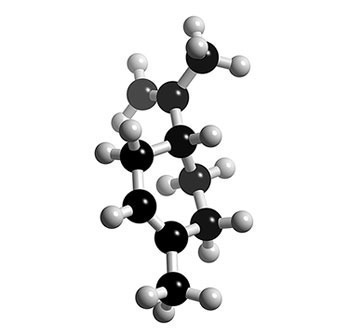Limonene
One of the primary components of the oil that is extracted from the rind of citrus fruits is Limonene. When the juice is removed from a citrus fruit, the oil is also extracted from the rind, separate from the juice. The oil is then distilled so that flavor and other fragrance compounds can be removed from it. After this process is complete, the left over oil is called limonene or food-grade limonene. After the juicing process is completed, the peels are placed in steam extractors in order to harvest additional limonene from the rind. This is considered technical grade limonene and is not at the same quality or level as the food grade oil. Pure limonene is clear in appearance. The two types of limonene are l-limonene and d-limonene. The “d” variant has an orange scent, while the “l” smells more like turpentine.
Limonene Uses
Limonene use has significantly increased in the past ten years. Limonene is an ingredient in products such as secondary cooling liquids, fragrance (giving an “orange” smell to products), paint solids, and cleaning products. Its use has increased in both consumer and international products and can be found in both water soluble products and solvents. Limonene is a “greener” alternative to mineral spirits, acetone, toluene, glycol ethers, methyl ethyl ketone, and both chlorinated and fluoridated products. It has similar solubility to common CFCs, and is therefore used in spray systems, dip baths, and wipe cleaners in place of other less environmentally friendly substances.
How is Limonene Used to Make Cleaning Solutions?
When limonene is mixed with surfactant packages, a rinsible, water diluting solution is produced. Limonene is normally 5-15% of the cleaning solutions that it is used to produce, which are primarily used as wipe or spray cleaners. These cleaners are often used for industrial purposes, such as removing the residue that is created during production from the machinery. Besides being more environmentally friendly, it is also significantly safer to expose people to limonene as opposed to the traditional compounds used in cleaning solutions.
What are Some of the Other Names for Limonene?
Limonene is known by several different names in industry. These include Carvene, Cinene, Dipentene, Methyl-4-isopropenyl cyclohexene, Cajaputene, and Efchole.


Comments - No Responses to “Limonene”
Sorry but comments are closed at this time.